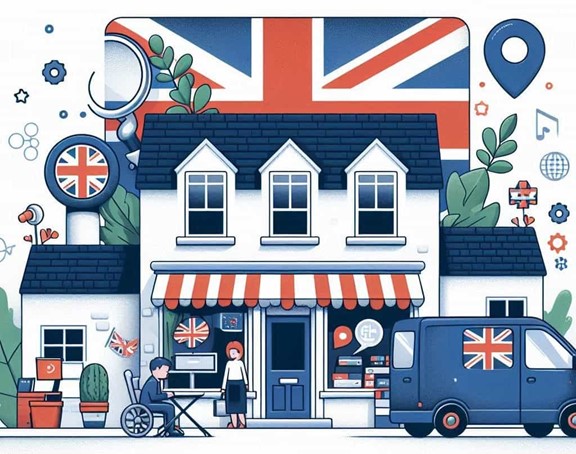New technological developments mean that even small businesses in the UK are discovering new forms of enhancing the relationship with the clients. Automation helps in the improvement of processes, decreasing response time and offering customisation to the customers, which in turn helps to enhance customer satisfaction and loyalty.
In this document we look at how automation can greatly enhance the customer experience for small business entities.
Streamlining Processes
Small business automation allows enterprises to optimize various operational tasks, leading to increased efficiency and effectiveness in customer service.
The routine of manual tasks like data entry, appointment fixing, invoicing has less chance of error and saves time for the employees. This is important to inform the customers that they can get a faster response or solution to the questions they have posed to the company.
Reducing Response Times
With automation, small businesses can effectively address customer enquiries. The chatbots and email response assistants offer round-the-clock service to the customers and the time they take to attend to the customer’s complaint or query is minimal.
This also improves the experience of the customers and at the same time makes them have confidence in the reliability of the brand. In addition, through programming different automation tools can be directed to handle requests that are most important or those that are emergency requests. Reducing response time is a good way through which small businesses can support their efforts of delivering quality services.
Personalising Experiences
Automation makes it possible for small enterprises to gather and analyse information about customers, to develop a better understanding of their needs. It can then subsequently be employed in customising the interactions with the customers, thus enhancing the experience.
For instance, in the cybersecurity field, automation tools can be used to track user behaviour and provide relevant security recommendations. In the same way in retailing, advanced technology can launch targeted promotional coupons to customers that can be based on their buying spree and their activities on the website. This level of personalisation creates a sense of belonging of the customers to the business and they are valued.
Impact of Automation on UK Small Businesses
In the UK, small businesses are increasingly recognising the benefits of automation, with approximately 75% of SMEs stating that they have implemented some form of automation in their operations. According to PWC, by the mid-2030s, automation is expected to affect approximately 30% of jobs in the UK. However, this does not necessarily mean job losses; rather, it is expected that the nature of work will change as automation takes over mundane and repetitive tasks.
Small businesses in the UK are embracing automation to enhance their competitiveness. It is therefore easier for these businesses to cut costs, increase efficiency and provide superior customer services and all these lead to better competitiveness in the market.
Challenges and Considerations
Despite the numerous opportunities that automatization opens for small businesses several challenges and issues should be discussed. The most significant is the overall first-time cost that is required to adopt automation systems. To small businesses, especially those that cannot afford it, it may not be possible to invest in expensive technologies.
Similarly, the possible displacement of employees and likely opposition from employees must also be considered when automation is to be adopted. Organisations have to make sure they have communication plans to address these issues and engage employees to reduce their worries.
The last but important element is the effect on the workforce. Since most of the work is set to be automated, the employees will require to learn new skills as well as fit into new positions within the firm. This may also demand more training and development and hence incur some extra expense for the small business.
Opportunities
There are many prospects that automation has for small businesses in the UK even though it has its own challenges. There will be more time for the employees to work on more important tasks which need more creativity and analysis. This can in turn result in improved satisfaction and motivation among the employees in their workplaces.
Another advantage of automation in small business operations is that the business can expand its operations without necessarily expanding the number of employees on its payroll. For this reason, they can increase output and output, thus, for example, respond to more orders or work with more clients.
Final Thoughts
Automation is no longer just a trend, but a necessary step for small businesses to stay competitive in today’s fast-paced business world. While there may be some challenges and resistance when implementing automation, the benefits far outweigh the costs.
Small businesses must carefully consider their unique needs and capabilities before embarking on an automation journey. It is essential to develop a comprehensive plan that addresses potential issues and involves employees in the process. With proper implementation and management, automation can drive growth, efficiency, and success for small businesses in the UK.


